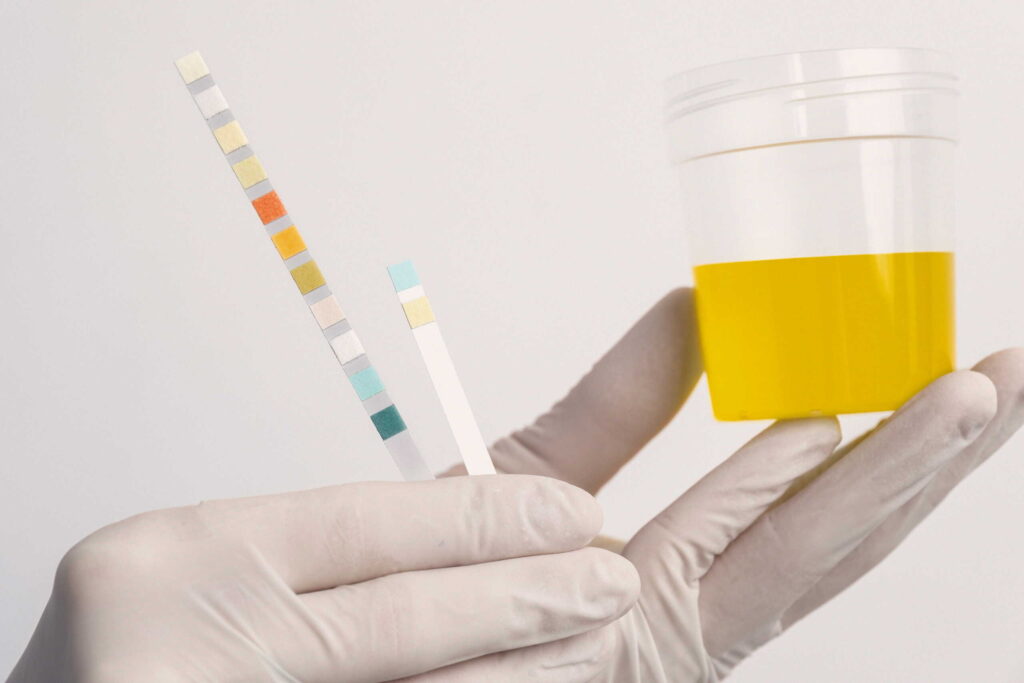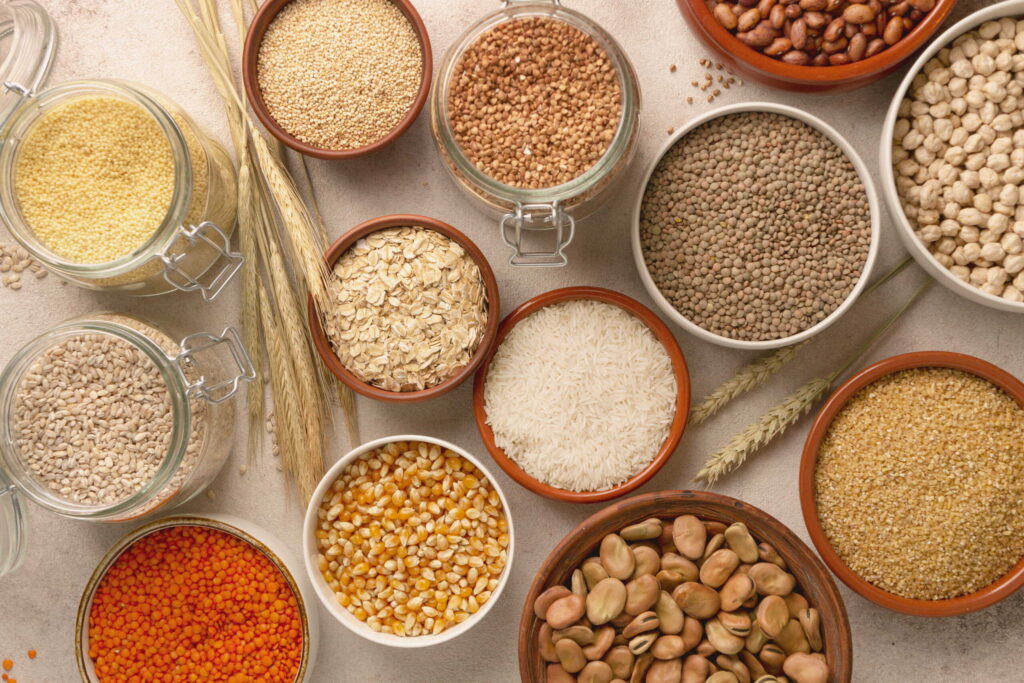Whole grains are a cornerstone of a balanced and nutritious diet, celebrated for their wealth of essential nutrients and dietary fiber.
Yet, only some people know that the consumption of whole grains can also impact urinary pH, which measures the acidity or alkalinity of urine.
In this article, we’ll explore the connection between whole grains and urinary pH and discuss the implications of this relationship for your health.
Understanding Urinary pH
To comprehend the influence of whole grains on urinary pH, we must first grasp what urinary pH represents and its significance.
- What is Urinary pH? Urinary pH measures the acidity or alkalinity of urine. The pH scale ranges from 0 to 14, with seven considered neutral. A pH below 7 indicates acidity, while a pH above 7 indicates alkalinity.
- Importance of Urinary pH: Urinary pH is vital for several physiological processes. Maintaining the appropriate urinary pH is essential for preventing the formation of kidney stones and ensuring optimal kidney function.

Whole Grains and Their Impact on Urinary pH
Whole grains possess characteristics that can influence urinary pH due to their unique composition. Here’s how the consumption of entire grains affects urinary pH:
- Fiber Content: Whole grains are renowned for their high dietary fiber content. An increased dietary fiber intake can contribute to a more alkaline urinary pH by augmenting the excretion of bicarbonate, a natural alkaline substance produced by the body.
- Mineral Content: Whole grains are also a source of vital minerals like magnesium and potassium, which can enhance urinary alkalinity.
- Acid-Forming Potential: Some whole grains may exhibit an acid-forming effect on urinary pH due to specific amino acids like cysteine and methionine. Nevertheless, the overall acid-forming potential of entire grains is generally less pronounced than that of diets rich in animal proteins.
Acid-Forming vs. Alkalizing Grains
The acid- or alkaline-forming potential of whole grains is not uniform.
Some whole grains may contribute to alkaline urine, while others may have a neutral or slightly acidic effect.
Let’s explore examples of these grains:
- Alkalizing Grains: Whole grains such as quinoa, millet, brown rice, and amaranth are considered alkalizing, often resulting in a more alkaline urinary pH.
- Neutral Grains: Whole wheat and oats tend to influence urinary pH neutrally.
- Potentially Acid-Forming Grains: The amino acid composition of certain whole grains, such as wheat bran and wheat bread, may slightly increase urinary pH levels.

Whole Grains You Could Implement into Your Daily Diet
Incorporating whole grains into your daily diet is both delicious and nutritious.
Here are some whole grains you can easily include in your meals:
- Quinoa: A versatile grain high in protein and a complete source of essential amino acids.
- Brown Rice: A classic whole grain, rich in fiber, vitamins, and minerals.
- Millet: Known for its nutty flavor and rich nutrient profile, millet is a good source of dietary fiber and antioxidants.
- Amaranth: A nutrient powerhouse, amaranth is gluten-free and loaded with vitamins and minerals.
- Oats: Famous for their soluble fiber, oats support heart health and provide sustained energy.
Nutritious Yet Simple Recipes That Include Whole Grains
Incorporating whole grains into your diet doesn’t have to be complicated. Here are some easy and healthy recipes to get you started:
Quinoa and Black Bean Salad:
Ingredients:
- 1 cup cooked quinoa
- 1 can black beans, drained and rinsed
- 1 cup corn (fresh or frozen)
- 1 red bell pepper, diced
- 1/4 cup chopped cilantro
- Juice of 1 lime
- Salt and pepper to taste
Instructions:
- Combine a large bowl of quinoa, black beans, corn, and diced red pepper.
- Whisk together lime juice, cilantro, salt, and pepper in a separate bowl.
- Pour the dressing over the salad and toss to combine. Chill before serving.
Oatmeal with Berries and Almonds:
Ingredients:
- 1 cup rolled oats
- 2 cups milk (dairy or plant-based)
- 1 cup mixed berries (strawberries, blueberries, raspberries)
- 1/4 cup chopped almonds
- Honey or maple syrup (optional)
Instructions:
- In a saucepan, bring the milk to a boil.
- Stir in the oats, reduce heat, and simmer for 5-7 minutes until creamy.
- Serve the oatmeal in bowls, topped with mixed berries, chopped almonds, and a drizzle of honey or maple syrup, if desired.
In conclusion, whole grains are crucial in maintaining a healthy diet and offer numerous health benefits.
Although entire grains may affect urinary pH due to their fiber and mineral content, it is just one aspect of a balanced diet.
Balanced urinary pH is vital for kidney and bone health and may help reduce inflammation.
By adding a variety of whole grains to your diet and considering your individual needs, you can enjoy the nutritional benefits of whole grains while supporting a balanced urinary pH.
If you have specific concerns about urinary pH and its potential impact on your health, it is recommended to seek guidance from a healthcare professional or registered dietitian.
References
Disclaimer
- It is intended for general informational purposes only: The information provided on BioKissed’s website and app, including but not limited to business opportunities, nutrition tips, healthy lifestyle tips, healthy lifestyle practice articles, nourishing recipes, and wellness articles (hereinafter collectively referred to as “Content”), is intended for general informational purposes only. The Content is not intended to be a substitute for professional business advice, medical advice, diagnosis, or treatment.
- It is solely at your own risk: BioKissed does not recommend or endorse any specific tests, physicians, products, procedures, opinions, or other information that may be mentioned on the website or app. Reliance on any information provided by BioKissed, its employees, contracted writers, or others appearing on the website or app at the invitation of BioKissed is solely at your own risk.
- BioKissed does not endorse or approve any views in the Content: BioKissed does not guarantee the accuracy, completeness, or usefulness of any Content, nor does it endorse any views expressed within the Content. The inclusion of any Content on BioKissed’s website or app does not imply endorsement or approval of such Content.
- You voluntarily assume all such risks: Before participating in any challenge, making significant lifestyle modifications, altering your dietary practices, or engaging in any related activities, it is advisable to assess your personal health and fitness levels. BioKissed expressly disclaims responsibility for the substances individuals choose to consume, and the company is not liable for any consequences, including those related to food allergies, resulting from such choices. By choosing to participate in any challenge, you acknowledge and agree that any such activities carry inherent risks, and you voluntarily assume all such risks, even if they arise from the negligence of BioKissed, its affiliates, or its members.
- BioKissed and its content providers disclaim any responsibility or liability for consequences: BioKissed and its content providers assume no responsibility or liability for any consequence relating directly or indirectly to any action or inaction you take based on the information found on or through BioKissed’s website or app.
- Read more
